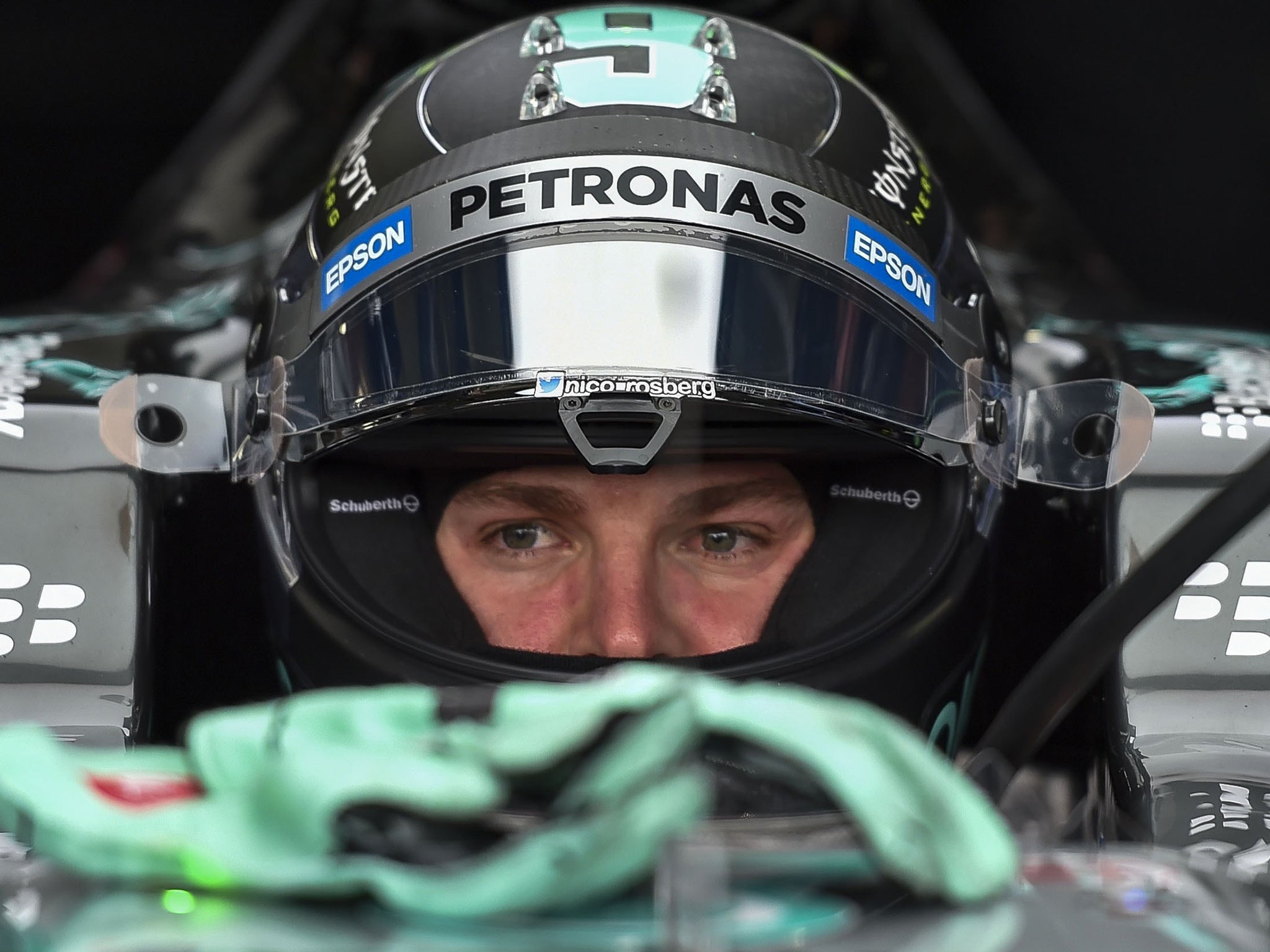F1 Brazilian Grand Prix 2015: Nico Rosberg keen to reverse roles at the home of Lewis Hamilton’s idol

Lewis Hamilton may have won his third World Championship already, but Nico Rosberg was determined not to give him an easy ride in their intra-Mercedes team fight here in Brazil yesterday.
Rosberg chalked up a dominant victory last time out in Mexico and is committed to keeping the momentum going, while England’s triple world champion has never won here, in his idol, Ayrton Senna’s, backyard.
“This was the home race for Ayrton, so it was a dream of mine to race in Sao Paulo and I always feel his presence when I’m here,” Hamilton said.
“It’s amazing to think that it took Ayrton eight attempts to win this race and it’s one of the few I haven’t yet won myself. If I can change that this weekend it would be a salute to him and another highlight to add to this amazing year.”
It has been an interesting week for Hamilton, with his mother Carmen’s 60th birthday, trips to London and New York, a rumoured hook-up with old flame Nicole Scherzinger and his shunt in Monaco with a parked car while in his Pagani Zonda supercar.
However, he shrugged it all off to set the fastest time in the first session yesterday before Rosberg reversed the result in the second. The Ferrari of Sebastian Vettel, Mercedes’ strongest rival, was then a second behind Rosberg.
This time last year Rosberg beat Hamilton to keep his title hopes alive. But while this year’s contest is long settled, he is in a fight with Vettel for second overall, and to preserve his pride. He might have lost the title fight, but winning the final three races would be a strong statement of intent heading into 2016.
“I’m really pumped after a great weekend in Mexico,” Rosberg said. “I’ve usually been pretty quick here and last year was a good battle with Lewis, when I came out on top. Standing on the top step after a hard-earned win, following in the footsteps of so many great drivers who have won there and with the passionate Brazilian crowd cheering on was a great feeling. I’d love to experience that again.”
It’s amazing to think that it took Ayrton eight tries to win this race and it’s one I haven’t won myself
Lewis Hamilton
On the face of it, little has changed in Formula One here beyond some overdue but still only part-finished new team accommodation at a circuit the drivers generally love. If this were a new venue it would, of course, never pass muster, for this is no clinical, homogenised “Hermann Tilkedrome”, but thankfully there is still room for variety on the calendar and this old-school track and its massively enthusiastic fans provide that in spades.
Behind the scenes, however, the argument over engine supply took a fresh turn as the FIA initiated the process this week of finding an alternative supplier for Formula One from 2017. Quite why this should be deemed necessary depends on your point of view.
If you have a Mercedes, or even a Ferrari, engine, in the back of your race car, you probably will not be too worried, apart from the cost, which is said to be around $30m (£19.7m) per season. But Red Bull, with their unloved Renault powerplants and a looming divorce from the French manufacturer, are stuck for supply for 2016 and beyond unless they consume some humble pie. They have until 22 November to sort something out.
There are some, the Formula One executive Bernie Ecclestone among them, who would like to see the new breed of 1.6-litre turbocharged hybrid motors thrown away. That is never going to happen. But Ecclestone has been a prime mover in suggesting an alternative.
But who would want such an engine? Would it further unravel the fabric of the sport, should the dice be loaded sufficiently in its favour to give users an advantage over the current range of expensive hybrids? Would it be a negative counterpoint to the new engines, which embrace technology of crucial interest to major manufacturers? Such questions remain as unanswered as the exact specification of the proposed alternative, though many expect it to be a larger capacity, non-turbocharged engine devoid of most of the energy recovery systems, the development of which has stymied Mercedes’ rivals such as Renault and Honda.
The FIA president, Jean Todt, who risks seeing a rival to his hybrids giving them unwanted competition, says he will push the idea through if the major suppliers do not agree to engine supply costs that are capped at $12m annually. Ferrari’s head Sergio Marchionne has suggested such a figure “would not cover the cost of our spark plugs”, thus confirming that hyperbole is one thing that is alive and well in the sport right now.
Some believe it is just a cynical ploy by Ecclestone to wrest some power back from the major motor manufacturers by providing a much cheaper alternative. The timescale for tenders is notably very short. Mario Illien, the father of Mercedes’ original breed of Formula One engines, is tipped to be a contender.
Subscribe to Independent Premium to bookmark this article
Want to bookmark your favourite articles and stories to read or reference later? Start your Independent Premium subscription today.

Join our commenting forum
Join thought-provoking conversations, follow other Independent readers and see their replies